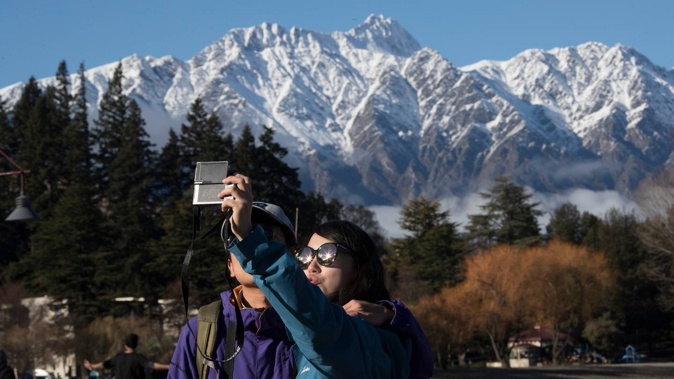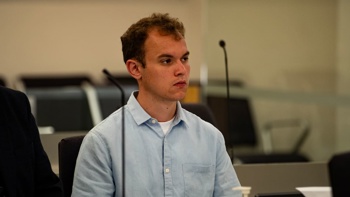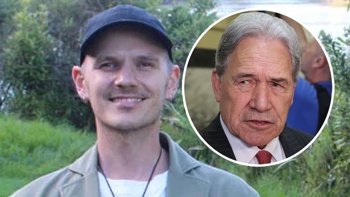
The Government’s decision to halt Tourism New Zealand’s domestic marketing activity has received a mixed response from regional tourism organisations.
On July 1, Tourism New Zealand (TNZ) will stop domestic marketing and refocus on international markets, leaving some RTOs “happy” and others “disappointed”.
When borders closed in 2020, international tourism came to a standstill and the Government asked TNZ to pivot towards promoting New Zealand to Kiwis.
Almost one year after borders fully opened to international visitors, this activity is scheduled to end.
The decision follows a Domestic Demand Review by the Ministry of Business, Innovation and Employment (MBIE), which recommended the Government “deactivate” TNZ’s domestic tourism marketing.
Amongst RTOs, opinions on the call are divided.
RTOs divided on the best way forward
All five RTOs who spoke to Herald Travel understood MBIE’s reasoning and respected the Government’s decision.
However, some said fully stopping activity and engagement between RTOs and TNZ would be a missed opportunity, if not a step backwards.
In Hawke’s Bay, where 80 per cent of tourists are domestic, Hawke’s Bay Tourism CEO Hamish Saxton said he knew the return of international markets was important to rebuild the visitor economy.
“We can understand arguments for Tourism New Zealand focusing on attracting offshore visitors,” he said, but added they would miss the benefits that came from national, impartial marketing.
“By departing the domestic market, we would predict there might be a void/vacuum in unbiased national messaging that promotes the importance and desirability of domestic travel and tourism.”
/cloudfront-ap-southeast-2.images.arcpublishing.com/nzme/XULDIFURNBSLNLMWBCZPBJZG64.jpg)
Hawke's Bay Tourism chief executive Hamish Saxton. Photo / Supplied
Saxton said RTOs would step in to fill the gap but it would be a battle of budgets.
“The void will be filled, to a degree, by regional tourism organisations that can afford to compete in this space – however there will be no alignment nor single messaging about Aotearoa New Zealand.”
Tourism Central Otago’s head of destination, Antz Longman, said the removal of marketing was “disappointing” and that Tourism New Zealand should maintain some level of involvement.
“Tourism Central Otago believes there is a role for Tourism New Zealand to play in the domestic visitor market,” he said, adding that the domestic market had qualities that the international market did not.
“It is more likely to explore regions which helps those not on the typical ‘golden route’, it has a much smaller carbon footprint than international travel and helps New Zealanders better understand their country and culture,” he said.
The golden route refers to the string of destinations favoured by international tourists due to their size, accessibility or attractiveness, such as Auckland, Rotorua, Lake Taupo, Queenstown and Wellington.
Tourism New Zealand supported and contributed to the review process but wished to continue domestic activity.
“As outlined in the report, our view was that there was value in maintaining a role in the domestic market as part of our market portfolio,” a TNZ spokesperson told Herald Travel.
Other destinations less concerned
Unsurprisingly, destinations favoured by international tourists did not appear as discouraged.
Rotorua was “broadly supportive of the decision” according to RotoruaNZ chief executive Andrew Wilson, but did hope they could retain the relationship between TNZ and the RTOs.
“We would hope that one of the key benefits of the domestic marketing programme – increased engagement between regional tourism organisations and Tourism New Zealand – would continue,” said Wilson.
RotoruaNZ chief executive Andrew Wilson. Photo / Andrew Warner
In Auckland, Tātaki Auckland Unlimited’s director of investment and industry, Pam Ford, said they were consulted on the MBIE review and accepted the decision, despite the poor timing.
“The decision to suspend domestic marketing activities comes at a time when Tātaki Auckland is facing considerable financial pressure due to Auckland Council’s 2023/2024 annual budget.”
However, they were optimistic they could keep up the momentum created by TNZ’s work, such as the ‘Urban Discovery’ campaign.
“We were proud to partner with Tourism New Zealand on this initiative, and it’s now the region’s job to continue this work alongside our partners,” Ford added.
/cloudfront-ap-southeast-2.images.arcpublishing.com/nzme/GYBHZTQ2ERQ2KVFFNECGA23M7U.jpg)
Pam Ford said it's up to the region and partners to continue the initiatives started by Tourism New Zealand. Photo/supplied
Meanwhile, Destination Queenstown’s chief executive Mat Woods said they were happy about the call.
“We support the Government’s decision to return domestic marketing to regional tourism organisations like us and we’re happy with that decision,” he said.
Woods said they appreciated TNZ’s work and, like Ford, saw it as something RTOs could run with.
“We thank TNZ for the great work over the last few years, encouraging Kiwis to see more of the country, and the RTOs can continue to build on those efforts,” he said.
MBIE thoroughly explores additional suggestions
A Parliament spokesperson told the Herald that the Government acknowledged RTOs’ concerns but said MBIE’s report’s key findings did not support the continuation of domestic marketing at a government agency level.
The review report did stress the value of domestic tourists, particularly to regions that “lack the reach or size to effectively engage with international visitors in the way that TNZ can”. But did not recommend continued nationwide marketing for several reasons.
One reason was that, from an economic policy perspective, there was no justification for Government persuading Kiwis to spend on tourism over other products or services.
“There was no rationale for government to encourage one type of spending by New Zealanders [eg on domestic tourism] over another [eg buying New Zealand produce],” the spokesperson said of the finding.
Secondly, given the wider economic considerations for government investment right now, MBIE could not justify spending on domestic tourism marketing over and above international tourism marketing.
“MBIE believes there is insufficient evidence to justify either additional budget allocation or a reallocation of spending from international marketing activities,” the report stated.
Although, MBIE did identify and explore the pros and cons of several “untapped opportunities” which could “yield positive outcomes across the tourism sector”.
It also stated there was a case for the Government using nationwide marketing in the future to “nudge” behaviours or outcomes such as sustainable tourism or greater engagement with Māori tourism and culture.
Take your Radio, Podcasts and Music with you

/cloudfront-ap-southeast-2.images.arcpublishing.com/nzme/HH2OXN7V5VAWZFBC3NZQAMWIZI.JPG)








